1st seamless rails welded for China-Laos railway
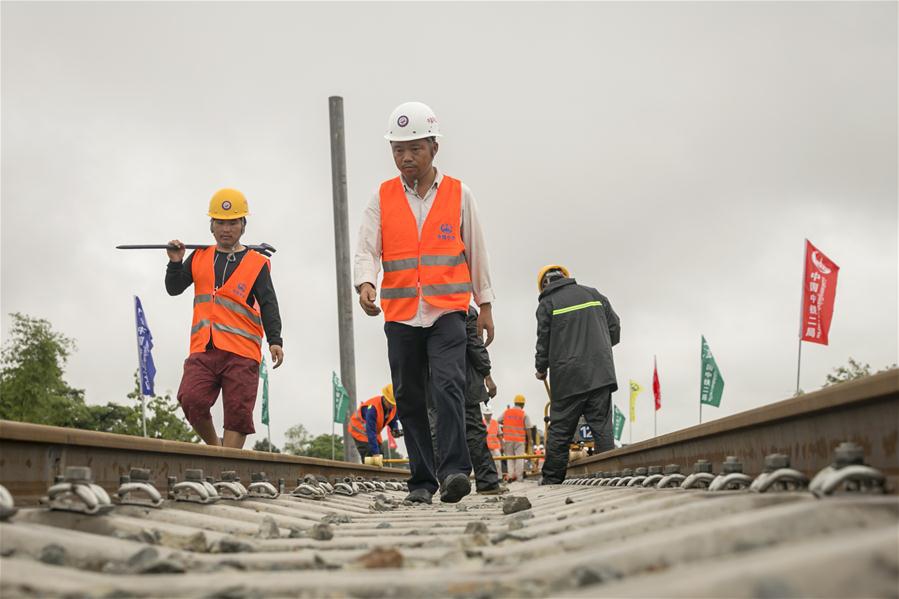
Workers from China Railway No.2 Engineering Group (CREC-2) check the welded seamless rails of the China-Laos railway in the northern suburb of Vientiane, Laos, on June 18, 2020. The CREC-2 has welded the first seamless rails for the China-Laos railway in the northern suburb of Lao capital Vientiane on Thursday morning. The seamless rail, also known as continuous welded rail (CWR) which eliminates rail joints, can improve the duration of steel rails, reduce the maintenance costs of locomotives and tracks, improve the stability and speed of trains, and enhance travel comfort. The China-Laos Railway is a project of the China-proposed Belt and Road Initiative, with a joint effort, aiming to convert Laos from a landlocked country to a land-linked hub. The project started in December 2016 and is scheduled to be completed and open to traffic in December 2021. (Photo by Kaikeo Saiyasane/Xinhua)
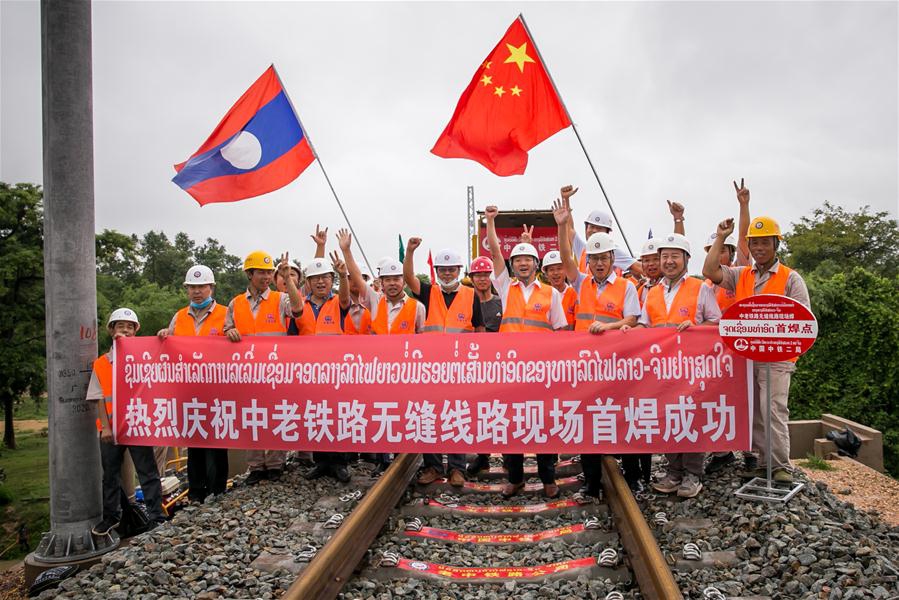
Workers from China Railway No.2 Engineering Group (CREC-2) pose for a group photo after welding the first seamless rails for the China-Laos railway in the northern suburb of Vientiane, Laos, on June 18, 2020. The CREC-2 has welded the first seamless rails for the China-Laos railway in the northern suburb of Lao capital Vientiane on Thursday morning. The seamless rail, also known as continuous welded rail (CWR) which eliminates rail joints, can improve the duration of steel rails, reduce the maintenance costs of locomotives and tracks, improve the stability and speed of trains, and enhance travel comfort. The China-Laos Railway is a project of the China-proposed Belt and Road Initiative, with a joint effort, aiming to convert Laos from a landlocked country to a land-linked hub. The project started in December 2016 and is scheduled to be completed and open to traffic in December 2021. (Photo by Kaikeo Saiyasane/Xinhua)
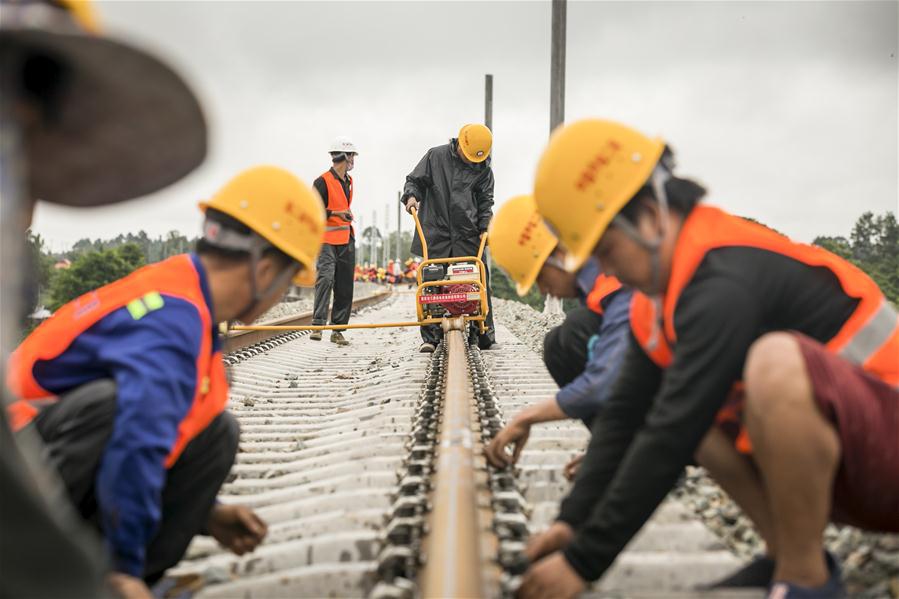
Workers from China Railway No.2 Engineering Group (CREC-2) screw the welded seamless rails of the China-Laos railway in the northern suburb of Vientiane, Laos, on June 18, 2020. The CREC-2 has welded the first seamless rails for the China-Laos railway in the northern suburb of Lao capital Vientiane on Thursday morning. The seamless rail, also known as continuous welded rail (CWR) which eliminates rail joints, can improve the duration of steel rails, reduce the maintenance costs of locomotives and tracks, improve the stability and speed of trains, and enhance travel comfort. The China-Laos Railway is a project of the China-proposed Belt and Road Initiative, with a joint effort, aiming to convert Laos from a landlocked country to a land-linked hub. The project started in December 2016 and is scheduled to be completed and open to traffic in December 2021. (Photo by Kaikeo Saiyasane/Xinhua)
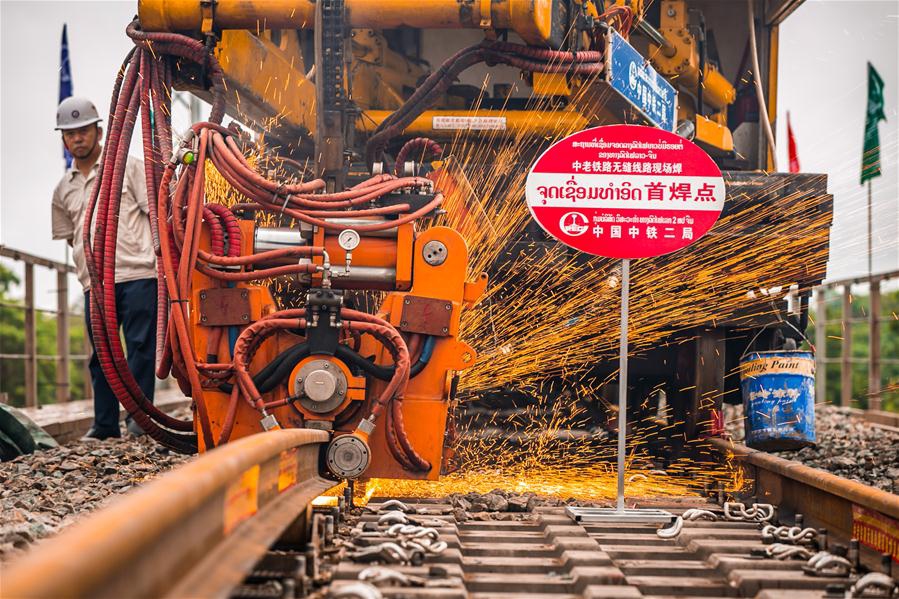
A worker from China Railway No.2 Engineering Group (CREC-2) welds the first seamless rails for the China-Laos railway in the northern suburb of Vientiane, Laos, on June 18, 2020. The CREC-2 has welded the first seamless rails for the China-Laos railway in the northern suburb of Lao capital Vientiane on Thursday morning. The seamless rail, also known as continuous welded rail (CWR) which eliminates rail joints, can improve the duration of steel rails, reduce the maintenance costs of locomotives and tracks, improve the stability and speed of trains, and enhance travel comfort. The China-Laos Railway is a project of the China-proposed Belt and Road Initiative, with a joint effort, aiming to convert Laos from a landlocked country to a land-linked hub. The project started in December 2016 and is scheduled to be completed and open to traffic in December 2021. (Photo by Kaikeo Saiyasane/Xinhua)
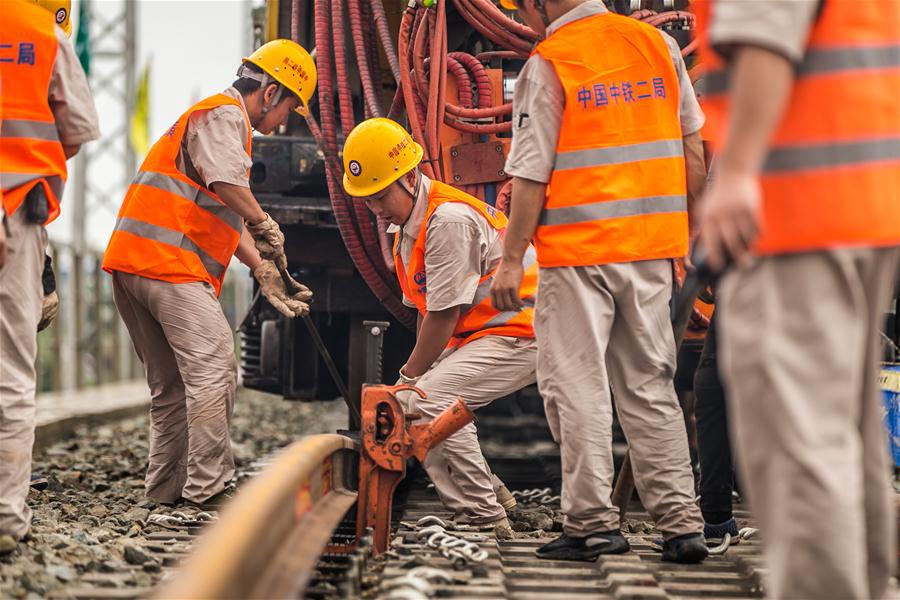
Workers from China Railway No.2 Engineering Group (CREC-2) fix the welded seamless rails of the China-Laos railway in the northern suburb of Vientiane, Laos, on June 18, 2020. The CREC-2 has welded the first seamless rails for the China-Laos railway in the northern suburb of Lao capital Vientiane on Thursday morning. The seamless rail, also known as continuous welded rail (CWR) which eliminates rail joints, can improve the duration of steel rails, reduce the maintenance costs of locomotives and tracks, improve the stability and speed of trains, and enhance travel comfort. The China-Laos Railway is a project of the China-proposed Belt and Road Initiative, with a joint effort, aiming to convert Laos from a landlocked country to a land-linked hub. The project started in December 2016 and is scheduled to be completed and open to traffic in December 2021. (Photo by Kaikeo Saiyasane/Xinhua)